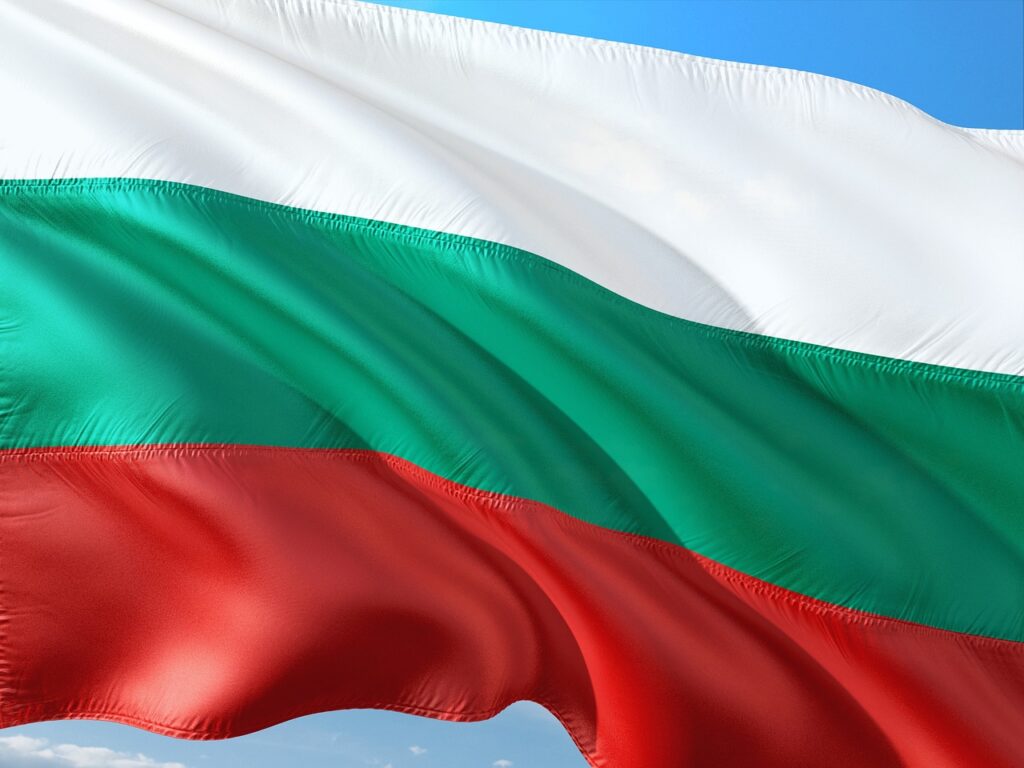
The caretaker government maintained protection efforts. During the reporting period, the Prosecution Service changed its methodology for reporting statistics on identified victims. Prior to 2022, the Prosecution Service reported cumulative statistics, whereas in 2022 they only reported newly identified victims. In addition, in 2022, multiple agencies reported statistics on identified victims, contrary to previous years, when only the Prosecution Service reported statistics. The Agency for Social Assistance (ASA), NCCTHB, and the Prosecution Service reported 298 identified victims (115 sex trafficking, 123 labor trafficking, 60 unspecified forms of trafficking) in 2022. The Prosecution Service reported 416 identified victims in 2021. Experts continued to express concern the victim data collection system remained overall unreliable, likely including double counting and, in turn, inhibiting the government’s ability to assess the scope of the trafficking problem. Of the 298 identified victims, 33 were child victims (20 sex trafficking, one labor trafficking, 12 unspecified forms of trafficking), compared with 42 in 2021. Authorities identified approximately seven foreign victims, six Ukrainian women, who were fleeing Russia’s full-scale invasion of Ukraine, and one Filipina woman, in unspecified forms of trafficking, compared with one foreign victim in 2021. NCCTHB reported assisting 86 of 298 identified victims (29 percent), of which 12 were children, compared with 42 out of 416 (10 percent) in 2021.
The NRM outlined the procedures for identification, referral, and victim assistance. The Prosecution Service was responsible for formally identifying potential trafficking victims, while government employees and NGOs could informally identify victims, allowing victims to access services and support programs immediately. NGOs alleged some authorities did not proactively screen for trafficking indicators and could not effectively identify victims, especially among vulnerable groups, such as asylum-seekers, migrants, children in residential care, individuals exploited in commercial sex, and members of the Romani community. NGOs and international organizations reported stigma and fear of isolation among migrants and cultural issues among the Romani community created extreme difficulties for all practitioners in identifying trafficking crimes. The State Agency for Refugees maintained guidelines to identify potential victims among foreigners seeking international protection, carry out risk assessments, assess immediate needs, and assist identified victims with accommodation, medical examinations, interviews, and special status pursuant to the Asylum and Refugees Act. Authorities, NGOs, and NCCTHB referred victims to services after determining their immediate needs. While NGOs and international organizations reported greater NRM awareness and generally good coordination, some NGOs remarked the referral process was inflexible and bureaucratic, citing different agencies’ multiple and overlapping requirements. In addition, one NGO noted the NRM provided clear guidelines on referring victims to services but questioned whether employees of relevant institutions were familiar with the guidelines and knew how to apply them routinely.
Under the NRM, all formally or informally identified domestic and foreign trafficking victims received access to services, including counseling, shelter, medical support, and reintegration assistance, regardless of their cooperation in investigations or prosecutions. NCCTHB supported seven NGO-operated dedicated centers and shelters – three counseling centers, three shelters for temporary accommodation, and one shelter for reintegration – in Sofia, Burgas, and Varna, providing specialized services for adult trafficking victims, and allocated 157,612 Bulgarian lev (BGN) ($86,130) for services in Burgas and Varna. MOI funded the services in Sofia, allocating 156,000 BGN ($85,250). However, there was no consistent funding mechanism in place to ensure the sustainability of the shelters from year to year. Civil society emphasized the need for a sustainable source of funds for NGOs, which have a wealth of experience in the sector and end up providing critical needs that the government cannot. Experts noted the victim protection program, in general, was chronically underfunded, hampering implementation of a fully-fledged victim-centered approach, and the financial resources invested did not correspond with the actual needs. Observers asserted shelter staff lacked sensitivity and a victim-centered approach, citing incidents of re-traumatization among victims. Observers also noted the limited number of dedicated shelters for trafficking victims throughout the country remained problematic. While there were other crisis centers available to trafficking victims, they were foremost intended for victims of violence. The Agency for the Quality of Social Services (AQSS) licensed 16 NGOs to operate crisis centers and provide social services funded by municipalities. For instance, Sofia Municipality allocated 387,803 BGN ($211,910) toward an NGO-run crisis center with a mother and baby unit for pregnant trafficking victims or female trafficking victims with children younger than three years old. AQSS also monitored and conducted inspections of service providers, municipalities, and local bodies for compliance with requirements and quality of services. ASA funded eight crisis centers for adult victims of violence, including trafficking.
Child victims of violence, including trafficking, could stay in municipality-operated crisis centers for up to six months at which point SACP could place them with relatives, a foster family, or another residential care facility. The crisis center for children in Sofia granted priority to child trafficking victims. Mobile crisis intervention teams were available to provide immediate socio-psychological assistance when necessary, through ASA. ASA, in conjunction with regional education departments and health inspection directorates, provided guidance on reporting potential child victims to all schools, kindergartens, nurseries, support centers, residential care facilities, and medical facilities; social workers investigated any reports. Child protection departments of the Social Assistance Directorate actively monitored child trafficking cases for one year, with the possibility of an extension, to provide necessary support and prevent children from being re-victimized. In some cases, the Directorate created a multidisciplinary team to develop an action plan for protecting the child. NGOs reported challenges in the coordination and referral of child victims due to an overly bureaucratic approach of child protection officials who sometimes prioritized paperwork over children’s needs. SACP maintained a coordination mechanism for unaccompanied children to coordinate among relevant government agencies and improve identification, referral, protection, and support of child trafficking victims. SACP tracked unaccompanied children registered in the national system and maintained a database of unaccompanied and separated children from third countries who were seeking or had already received international protection. More than 3,000 unaccompanied children from third countries were registered in 2022. SACP regularly monitored places where unaccompanied children were accommodated to ensure their safety. In 2022, SACP’s interagency working group continued developing a three-year national program for the prevention of violence and child abuse and a corresponding implementation plan, including activities for child trafficking victims, such as reintegration. SACP operated the 24-hour national hotline for children at risk, including trafficking, until September 2022, when ASA began operating the hotline. In 2022, the hotline received 70 reports of children at risk of trafficking and exploitation.
Bulgarian law allowed foreign victims who cooperated with law enforcement to receive long-term residence permits and work in Bulgaria for the duration of criminal proceedings before deportation. For foreign victims who chose not to assist in investigations, the government provided a 30-day recovery period (60 days for foreign child victims) before repatriation. Observers noted many victims did not cooperate with law enforcement because they did not believe the judicial system would protect them, effectively administer justice, or convict perpetrators with meaningful sentences. The law exempted trafficking victims from punishment for unlawful acts committed as a direct result of being trafficked; however, practitioners noted this law did not provide full exemption as force was not always applied. Some experts said police generally did not understand individuals in commercial sex were vulnerable to trafficking or that the non-punishment provision for crime victims could apply to them. For instance, observers reported law enforcement often viewed members of the Romani community as voluntarily engaging in commercial sex and did not consider them trafficking victims. In 2022, upon the recommendation of the prosecutor general and judges from the Supreme Court of Cassation, the Constitutional Court invalidated an old provision of the criminal code that punished persons, who generated income through “immoral activity,” with penalties of up to two years’ imprisonment or probation; authorities mostly used the provision to initiate criminal proceedings against persons who begged or engaged in commercial sex. The government provided repatriation assistance to Bulgarian citizens despite having no designated funds, and sometimes relied on an international organization or institutions in the destination countries to cover costs. While the law provided free legal assistance to victims, qualified legal aid was difficult to access, especially when victims were outside of the jurisdiction of the court reviewing the case. The National Office for Legal Assistance published and distributed a brochure on the terms and conditions for receiving legal aid. The National Office for Legal Assistance also funded and implemented a three-year project to improve access to justice for persons living below the poverty line, with a focus on women, children, and Roma, allocating 1.47 million BGN ($803,280). The project provided legal aid to 250 persons from vulnerable groups, improved coordination between different municipal and local authorities, supported various administrative units helping victims, and improved the capacity of 300 lawyers in this area. The process for seeking compensation remained overly bureaucratic and discouraged victims from filing civil suits. In 2022, there were no cases of restitution.
from 2023 Trafficking in Persons Report – U.S. Department of State
2023 Trafficking in Persons Report – United States Department of State

